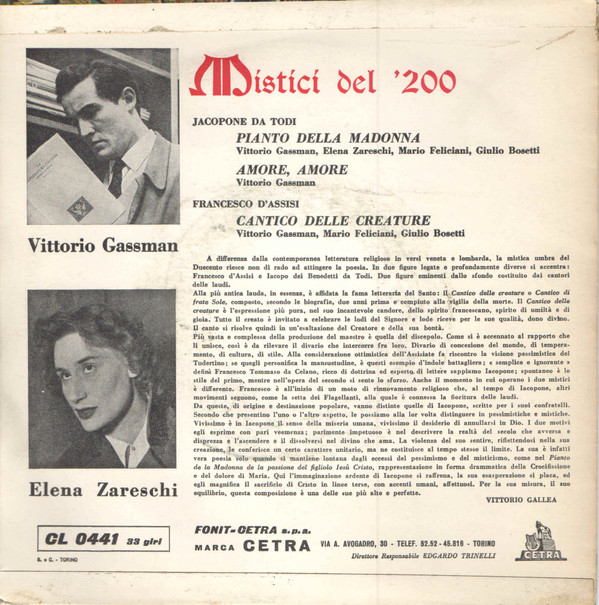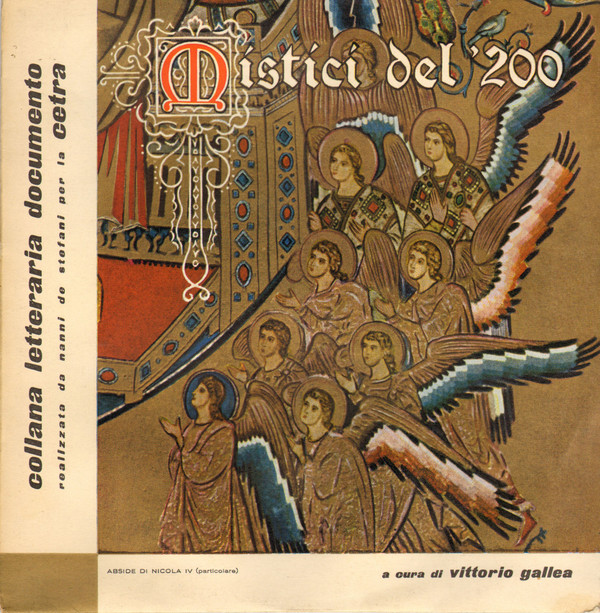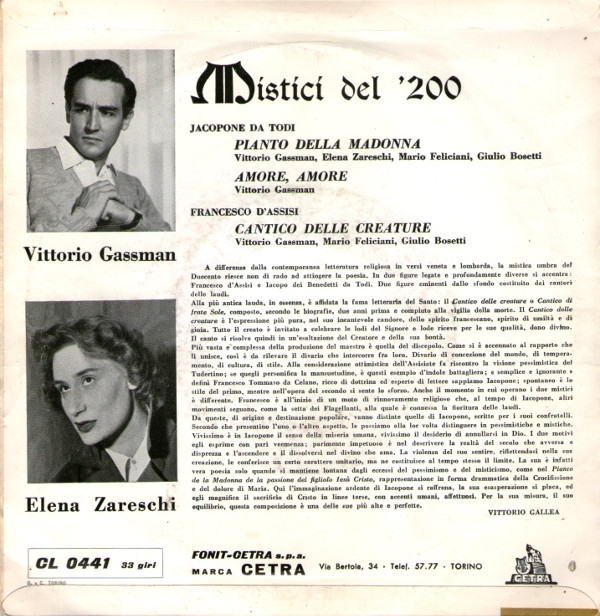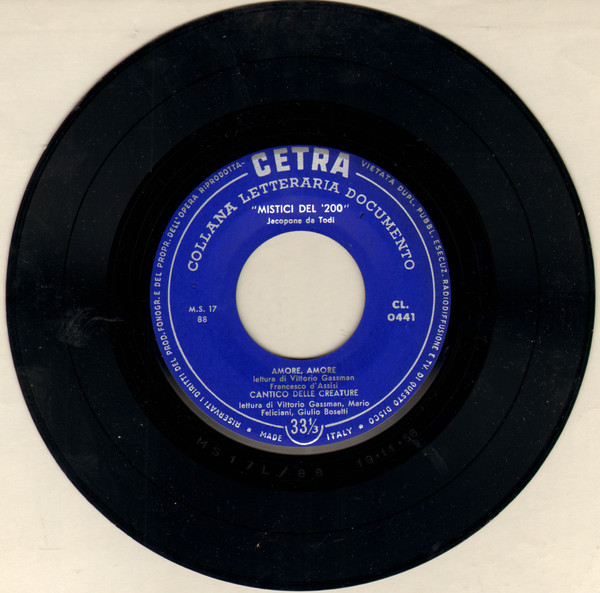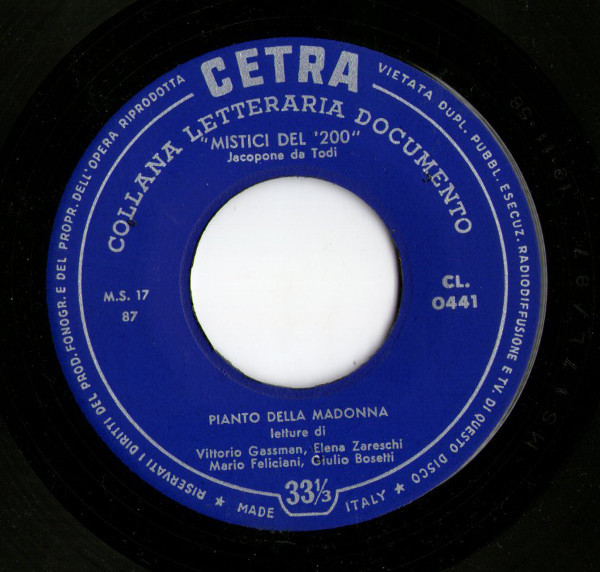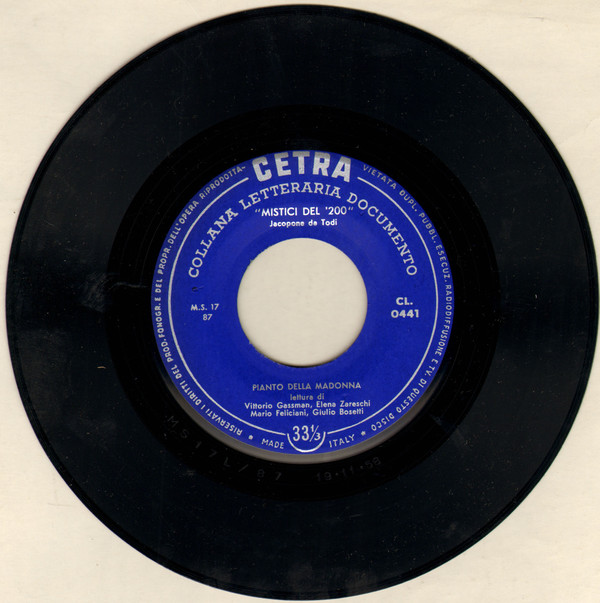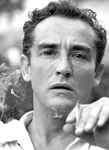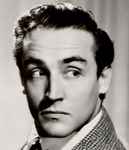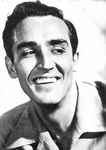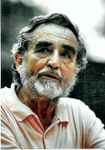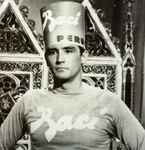Vittorio Gassman (Il Mattatore) (September 1, 1922 - June 29, 2000) was an Italian theatre and film actor and director.
Born in Genoa to a wealthy family of German origins, Gassmann was considered one among the best Italian actors and is commonly recalled as an extremely professional, versatile, magnetic interpreter, whose long career includes both important productions as well as dozens of divertissements (which gave him a vast popularity).
While very young he moved to Rome, where he attended the studies at the Accademia Nazionale d'Arte Drammatica where some of the most important figures of Italian theatre and cinema also studied, such as Paolo Stoppa, Rina Morelli, Adolfo Celi, Luigi Squarzina, Elio Pandolfi, Rossella Falk, Lea Padovani and, later, with Paolo Panelli, Nino Manfredi, Tino Buazzelli, Gianrico Tedeschi, Monica Vitti, Luca Ronconi and many others.
His debut was in Milan, in 1942, with Alda Borelli in Niccodemi's Nemica (theatre), he then moved to Rome and the Teatro Eliseo joining Tino Carraro and Ernesto Calindri in a team that remained famous; with them he acted in a range of plays from bourgeois comedy to the sophisticated intellectual theatre, with no apparent difficulty in the sudden changes.
In 1946 he made his film debut in Preludio d'amore, the year after he appeared in five films. In 1948 his famous interpretation in Riso Amaro displayed his love for cinema and his capability of excelling both in movies and at the theatre.
It was with Luchino Visconti's company that Gassman achieved his mature successes, together with Stoppa, Rina Morelli and Paola Borboni. He played a vigorous Kowalski in Tennessee Williams' Un tram che si chiama desiderio, then emphatic in Shakespeare's Rosalinda or in Vittorio Alfieri's Oreste. He then joined the Teatro Nazionale with Tommaso Salvini, Massimo Girotti, Arnoldo Foà, for a successful Peer Gynt (Ibsen).
With Luigi Squarzina in 1952 he co-founded and co-directed the Teatro d'Arte Italiano, producing the first complete version of Hamlet in Italy, then rare works such as Seneca's Tieste or Eschilo's The Persians.
In 1956, a key year in his career, Gassman played a memorable Othello with the great actor Salvo Randone, exchanging with him the roles of the Moor and Iago. A little later, in the television series entitled Il Mattatore (spotlight chaser) he obtained unexpected success and Il Mattatore soon became the nickname that accompanied him for the rest of his life. That year Gassman also directed and starred in a movie dedicated to theatre: it was a version of Kean.
A true perfectionist, he always hated imperfect diction, or dialectal corruptions (but he was also able to render, perfectly and when needed, most of the many Italian dialects). Quite bravely, he accepted the challenge of directing Adelchi, one of the less known and less "easy" works by Alessandro Manzoni. He toured his production to half a million spectators, crossing Italy with his Teatro Popolare Itinerante (a newer edition of the famous Carro di Tespi).
His productions include most of the famous authors of 20th century, with repeated returns tothe classics of Shakespeare, Dostoevskij and the Greeks. He also founded a theatre school in Florence, which formed many of the more talented actors of the current generations.
In cinema he worked abroad several times and during a stint in Hollywood he met and married Shelley Winters.
But, despite his success in films, Gassman never left theatre. In the later part of his career, he added poetry to his repertoire, helping to bring to Italy foreign works.
Gassman the actor, married "only" actresses: Nora Ricci (with whom he had his first daughter Paola, an actress herself and wife of Ugo Pagliai), Shelley Winters, Juliette Maynel, who gave him Alessandro (also an actor), and Diletta D'Andrea.
Gassman was a man of intense emotions and intellectual honesty; his notable sense of humour and self-irony, brought him in the 1990s to take part in a popular TV show in which he very formally and 'seriously' recited documents such as the gas invoice, as well as the telephone bill and similar texts. He rendered them with the same professional skill that made him famous while reciting Dante's Commedia.
Generally acclaimed as an actor, Gassman was also discussed as a man, due to his private life - his divorces (a noted scandal in 1950s and 60s), his initial atheism (later he gained a certain personalistic faith). Also, in his public appearances on the media he often gave original or unconventional comments, sometimes with the clear intention of disturbing the moderated cultural positions; he also gained many enemies in the world of art for similarly frank judgements.
In his latest years he was victim of depression.
He died of a heart-attack in his Roman home.
Name Vars
- Gassman
- V. Gassman
- Vittorio Gasman
